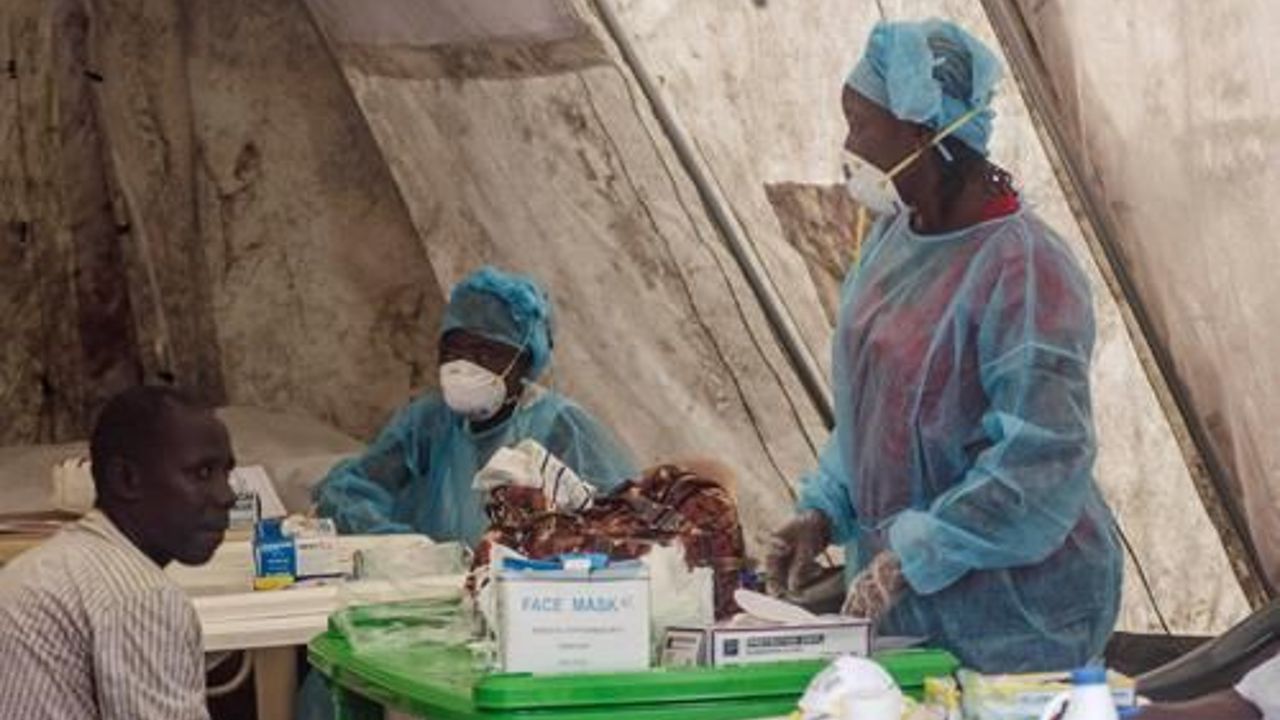Africa ministers to take collective measures against Ebola
Health |
Top health officials from twelve African countries have agreed on several strategies against Ebola virus.

Font Size:
Top health officials from twelve African countries have agreed on several strategies that they hope would help tackle the deadly Ebola virus that is sweeping through the West African region.
Among the agreed-upon strategies is to "deploy additional national human resources to key hot spots of the sub-region to fight the outbreak," a communiqué issued at the end of a two-day ministerial meeting in Accra said.
The release also called negotiations with countries that have experience in managing Ebola for additional staff support, while urging governments to "organize cross-border consultations to facilitate exchange of information and agree on joint collaborative activities."
The meeting held under the auspices of the World Health Organization (WHO) brought together top health officials and key stakeholders to obtain consensus on the "optimal way of interrupting the ongoing Ebola Virus transmission in West Africa."
The WHO has agreed to "mobilize and deploy the needed staff, experts and consultants to support the response to the ongoing Ebola virus disease (EVD) outbreak," the communiqué noted.
The continent's donor partners were also urged to "mobilize funds, expertise and technology necessary to support response operations in the EVD affected countries."
Ebola is responsible for the death of dozens in the three countries of Guinea, Liberia and Sierra Leone.
The nine-point communiqué also outlined some medium to long term actions. These include mobilizing efforts to improve awareness and understanding of the Ebola in all communities.
The African governments were also urged to pay their contributions to the African Public Health Emergency Funds to support investigation and response to outbreaks and other public health emergencies in the continent.
Ebola is a contagious disease for which there is no known treatment or cure.
According to the WHO, the virus which tends to cause severe viral hemorrhagic fever has a fatality rate of some 90 percent.
The virus can be transmitted to humans from wild animals and also spreads through human-to-human transmission.
As of June 17, a total of 264 Ebola deaths and 398 infections had been reported in Guinea; 24 deaths and 33 infections in Liberia; and 49 deaths and 97 infections in Sierra Leone, according to the WHO.
The tropical fever first appeared in 1976 in Sudan and the DRC. It was named after the Ebola River, which runs close to the Congolese town of Yambuku the site of the first documented case of the virus.
Among the agreed-upon strategies is to "deploy additional national human resources to key hot spots of the sub-region to fight the outbreak," a communiqué issued at the end of a two-day ministerial meeting in Accra said.
The release also called negotiations with countries that have experience in managing Ebola for additional staff support, while urging governments to "organize cross-border consultations to facilitate exchange of information and agree on joint collaborative activities."
The meeting held under the auspices of the World Health Organization (WHO) brought together top health officials and key stakeholders to obtain consensus on the "optimal way of interrupting the ongoing Ebola Virus transmission in West Africa."
The WHO has agreed to "mobilize and deploy the needed staff, experts and consultants to support the response to the ongoing Ebola virus disease (EVD) outbreak," the communiqué noted.
The continent's donor partners were also urged to "mobilize funds, expertise and technology necessary to support response operations in the EVD affected countries."
Ebola is responsible for the death of dozens in the three countries of Guinea, Liberia and Sierra Leone.
The nine-point communiqué also outlined some medium to long term actions. These include mobilizing efforts to improve awareness and understanding of the Ebola in all communities.
The African governments were also urged to pay their contributions to the African Public Health Emergency Funds to support investigation and response to outbreaks and other public health emergencies in the continent.
Ebola is a contagious disease for which there is no known treatment or cure.
According to the WHO, the virus which tends to cause severe viral hemorrhagic fever has a fatality rate of some 90 percent.
The virus can be transmitted to humans from wild animals and also spreads through human-to-human transmission.
As of June 17, a total of 264 Ebola deaths and 398 infections had been reported in Guinea; 24 deaths and 33 infections in Liberia; and 49 deaths and 97 infections in Sierra Leone, according to the WHO.
The tropical fever first appeared in 1976 in Sudan and the DRC. It was named after the Ebola River, which runs close to the Congolese town of Yambuku the site of the first documented case of the virus.
Video News

WORLD
26 Mart 2024 - 11:18
Photo News






